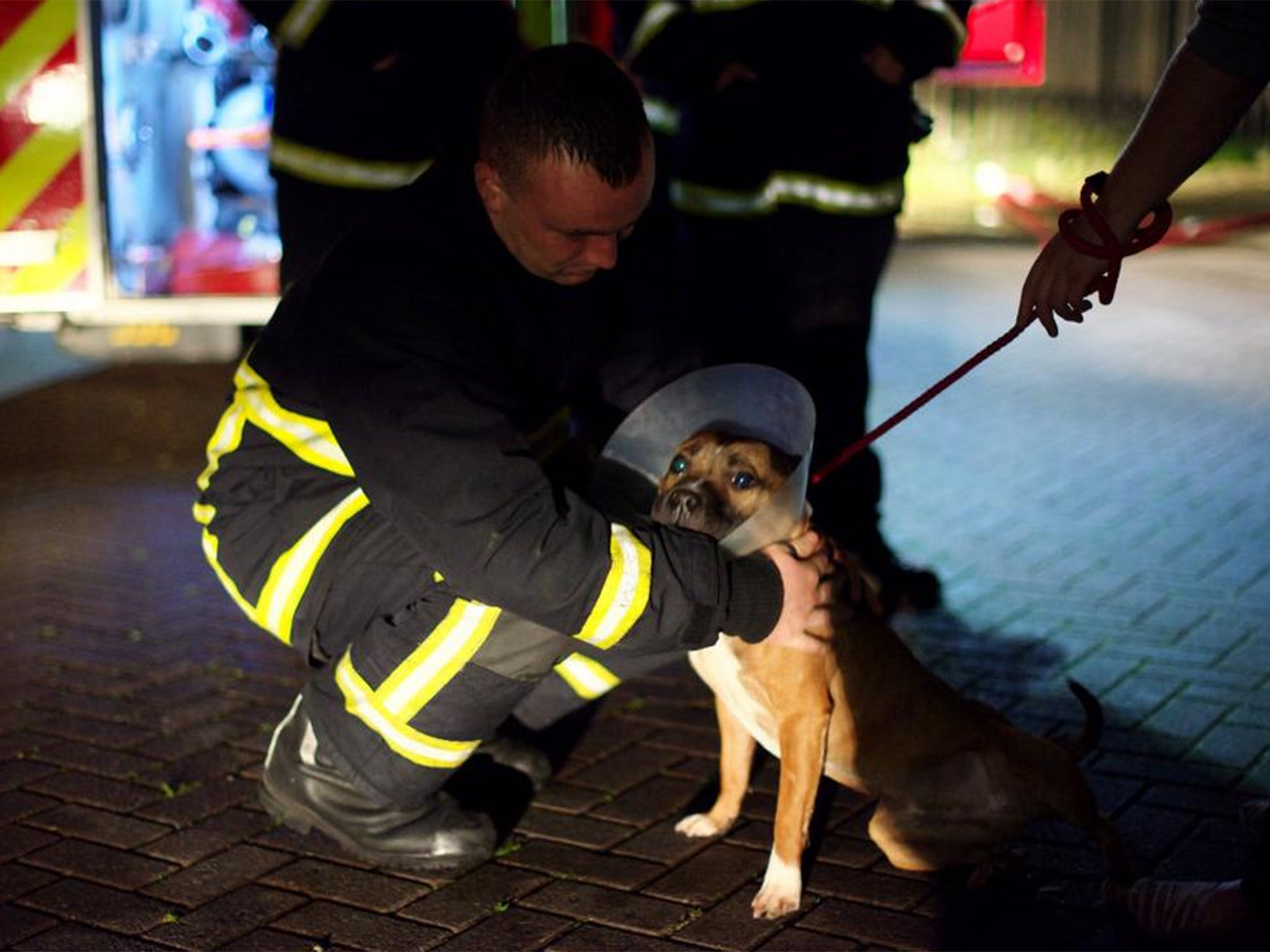Charity isn't a thing of the past — we should be proud about how much we give
As the response to the Manchester Dogs' Home has proven, we're still a generous nation, despite what the critics say

In Pride, the British film that is being hailed as the new Billy Elliot/The Full Monty/Brassed Off/Calendar Girls, a group of lesbian and gay activists in London pledge to support the miners during the 1984 strike and end up forming an unlikely alliance with a small Welsh village that is on the brink of pit closure and devastation.
There is something very satisfying, very human, about the coming together of two unlikely tribes in the spirit of charity. Even more so when you discover that it is a true story. It is – to borrow from the lexicon of the film poster – a heart-warming, life-affirming tale.
I thought of Pride – which has received five-star raves across the board and has taken more than £1m at the box office since last Friday – this week when I saw footage of the aftermath of the fire at Manchester Dogs’ Home. A report on BBC North West Tonight focused on a group of local bikers who had set up a meet in order to deliver, in noisy convoy, supplies of dog litter, blankets and Pedigree Chum to the gutted site.
It is hardly the same culture clash as the one that drives Pride but there was something in the sight of a group of burly bikers in leathers and chains handing over bags of doggy chews and tartan rugs that warmed the heart; that was, if you like, life affirming. At the very least it offered a chink of comfort and humanity following the senseless, inhumane act in which someone set a match to the kennels and watched 60 helpless, homeless dogs burn to death.
The outpouring of support for the Dogs’ Home, which is located in Harpurhey, the most deprived borough in England according to a 2007 government survey, has been remarkable. Quite apart from the have-a-go neighbours who kicked down the doors to save 20 dogs, leading them out through smoke and flames on leads, £1m was raised in 24 hours. The M6 was nearly brought to a halt (no great feat, perhaps) by cars queuing up to donate crates of pet food. The website JustGiving crashed under the strain of strangers donating £10,000 every five minutes. Now, say employees at the Dogs’ Home, they have more supplies than they know what to do with.
Perversely, this outpouring for a charity that has rehomed over a million dogs since it was founded in 1893 has also fanned the ire of the charity naysayers. You know the sort, always looking for the cloud within the silver lining. “All that money for dogs?” they query. “What about all the humans in need?” they plead slyly. Bel Mooney, whose memoir is titled A Small Dog Saved My Life, wrote about her “disquiet” at the dramatic response and worried that we now care more for dogs than humans. Not so – it was just the dogs’ turn for some very bad luck, followed by some very good will.
There is a charity cycle now. Something terrible happens and everyone chips in to make it better – often thanks to social media. Suddenly the cause is overwhelmed with donations, attention and celebrity selfies. Sometimes it cannot cope with its rapid rise from underdog to success story, and that is when the backlash begins.
The same thing happened with Stephen Sutton, the teenage fundraiser for cancer who was accused by internet trolls of “duping” the public when he dared to enjoy a brief spell out of hospital. He died in May, but not before he had raised £4.96m – or enough to build several new cancer units and fund 50 scholarships for cancer nurses.
And the same happened with the ice bucket challenge, which was criticised for being narcissistic, pointless, environmentally unfriendly. Nevertheless, in one week in August, when those Facebook posts were at their annoying peak, the Motor Neurone Disease Association took donations of £2.7m as opposed to its usual £200,000. It is hard to argue with cold, hard cash like that.
These spikes of generosity come around once in a while, and if they appear from nowhere and sometimes go a little over the top, that is the bonkers beauty of human generosity. Who is anyone to say how anyone else should spread their goodwill? Each individual is free to donate, or not, as they see fit. Not a fan of the ice bucket? Run a marathon, or give a pound to a chugger. Don’t care about dogs? Donate to the Red Cross instead. There are plenty of causes and campaigns out there to choose from, but none deserves a kicking. There is nothing life affirming or heart warming, and certainly nothing useful, about a backlash.

Join our commenting forum
Join thought-provoking conversations, follow other Independent readers and see their replies